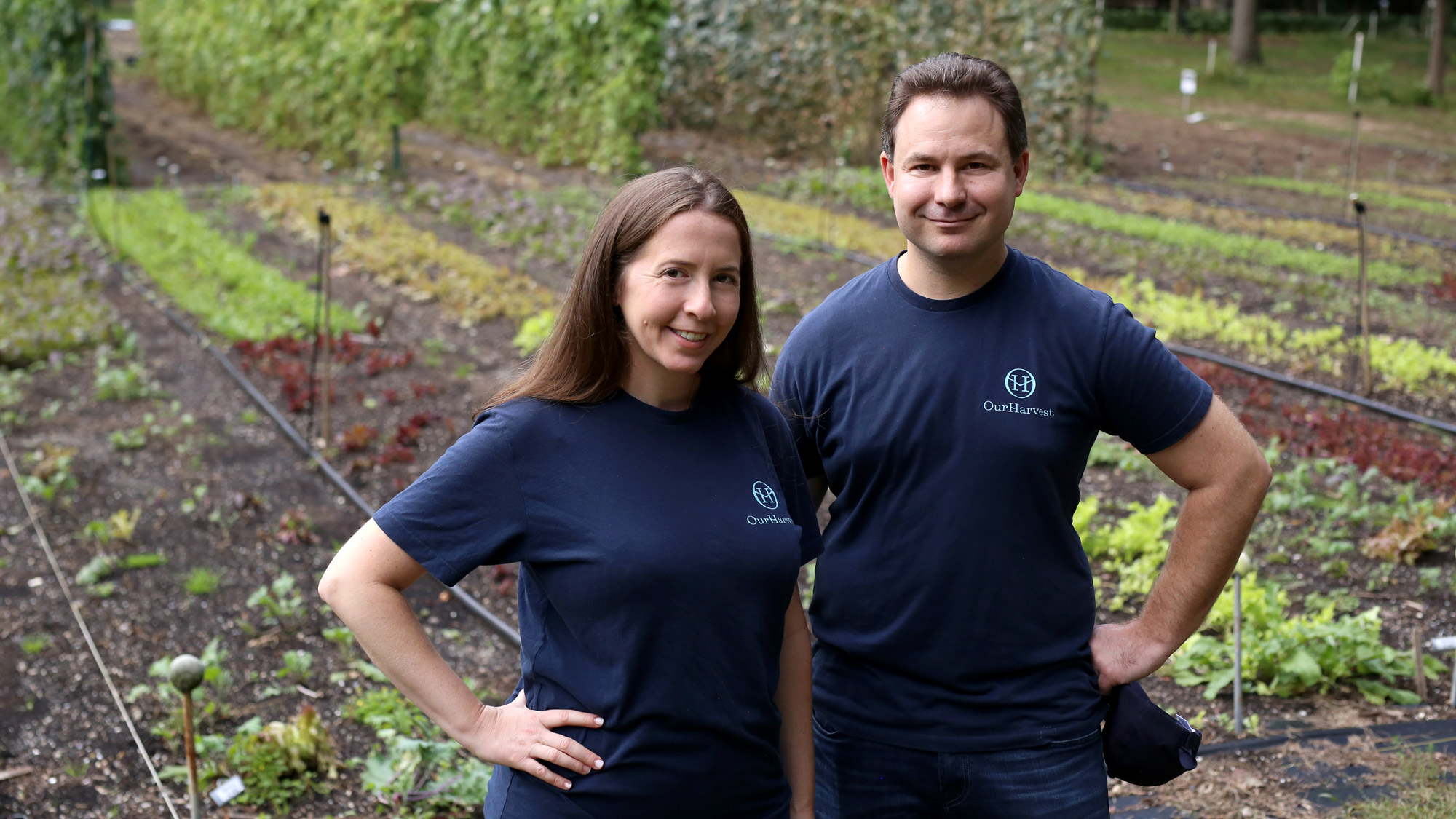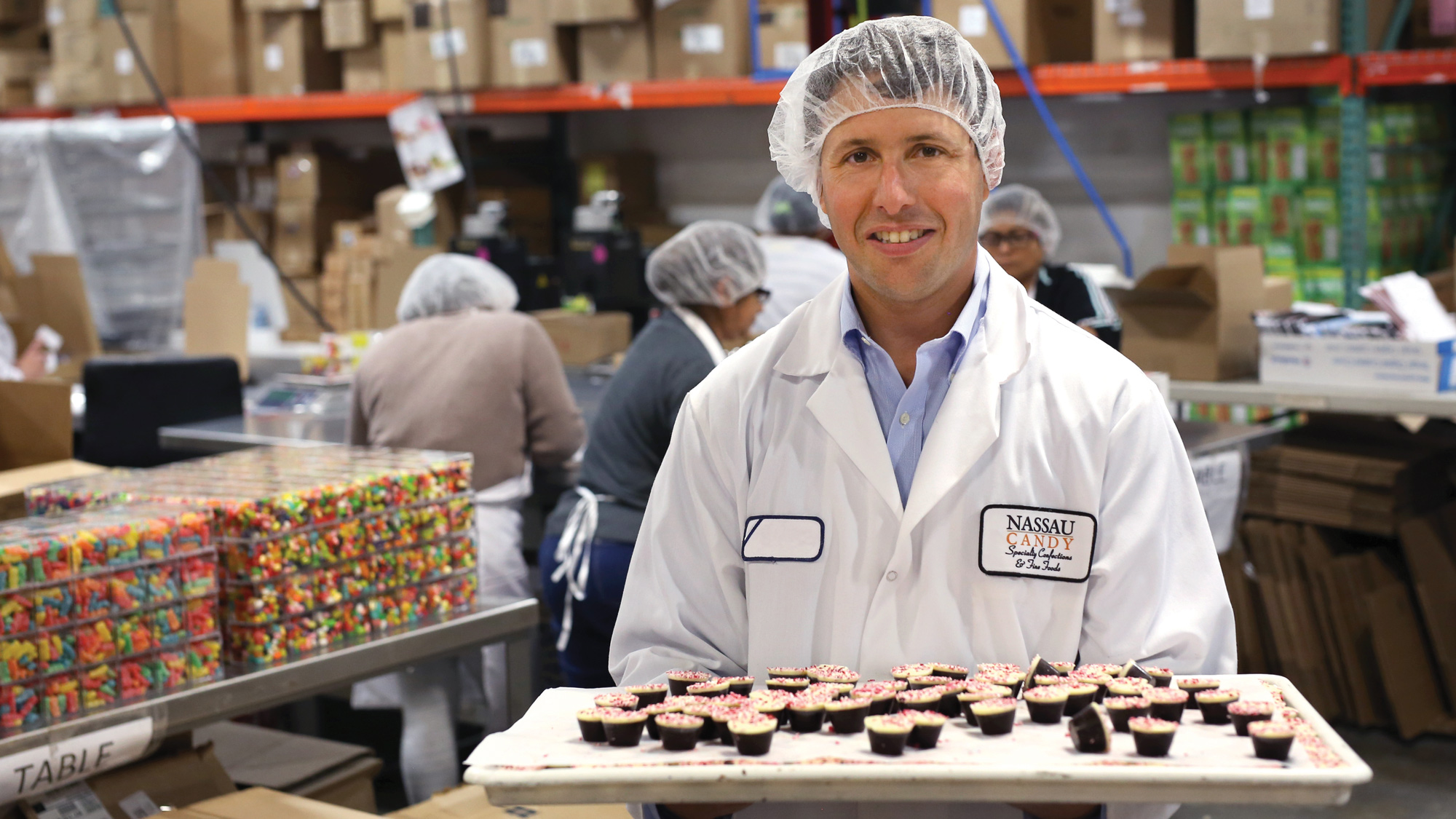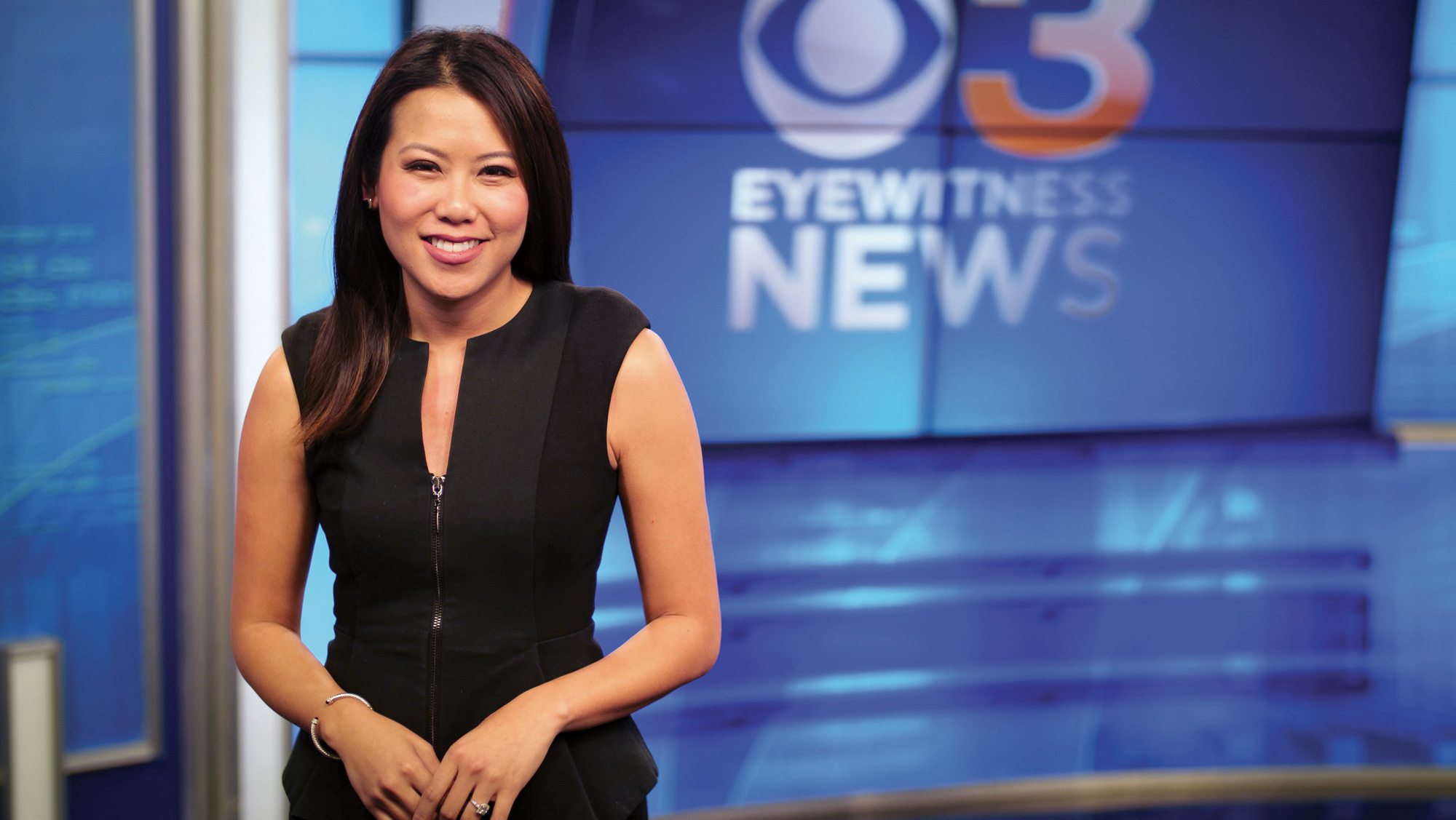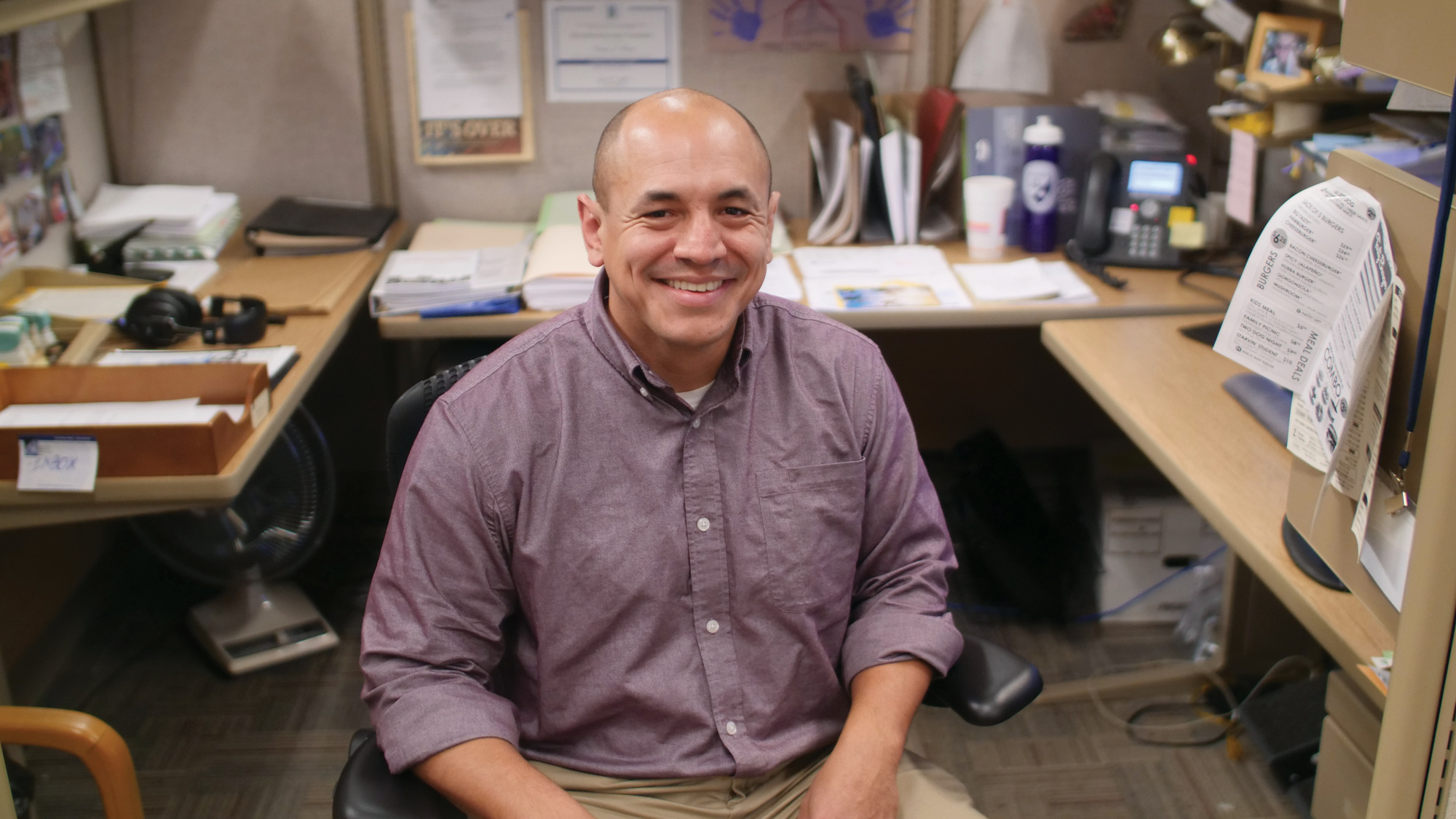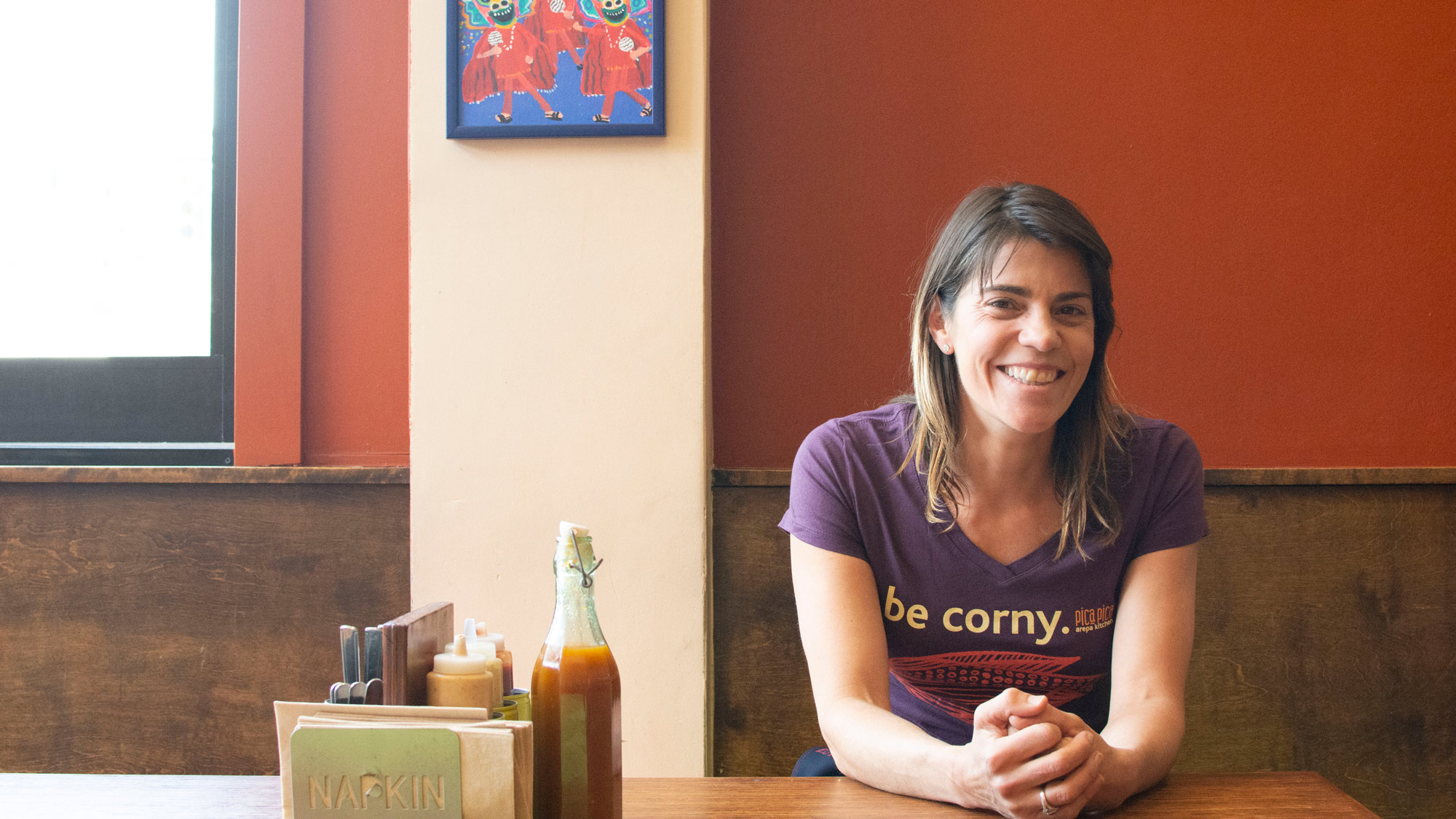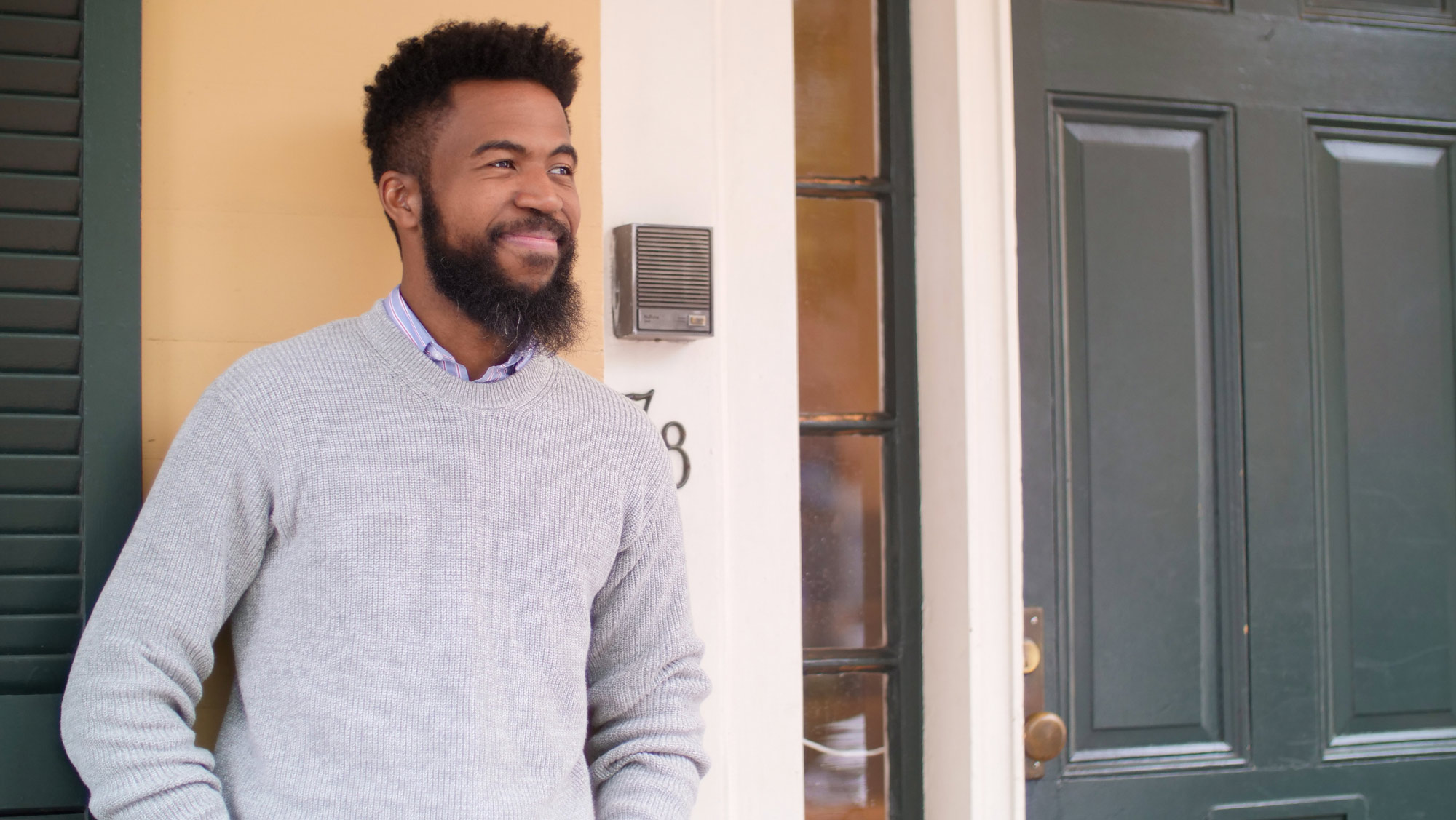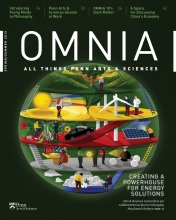On the Job
The Penn Arts & Sciences at Work series follows the life experiences and unique career paths of College alumni.
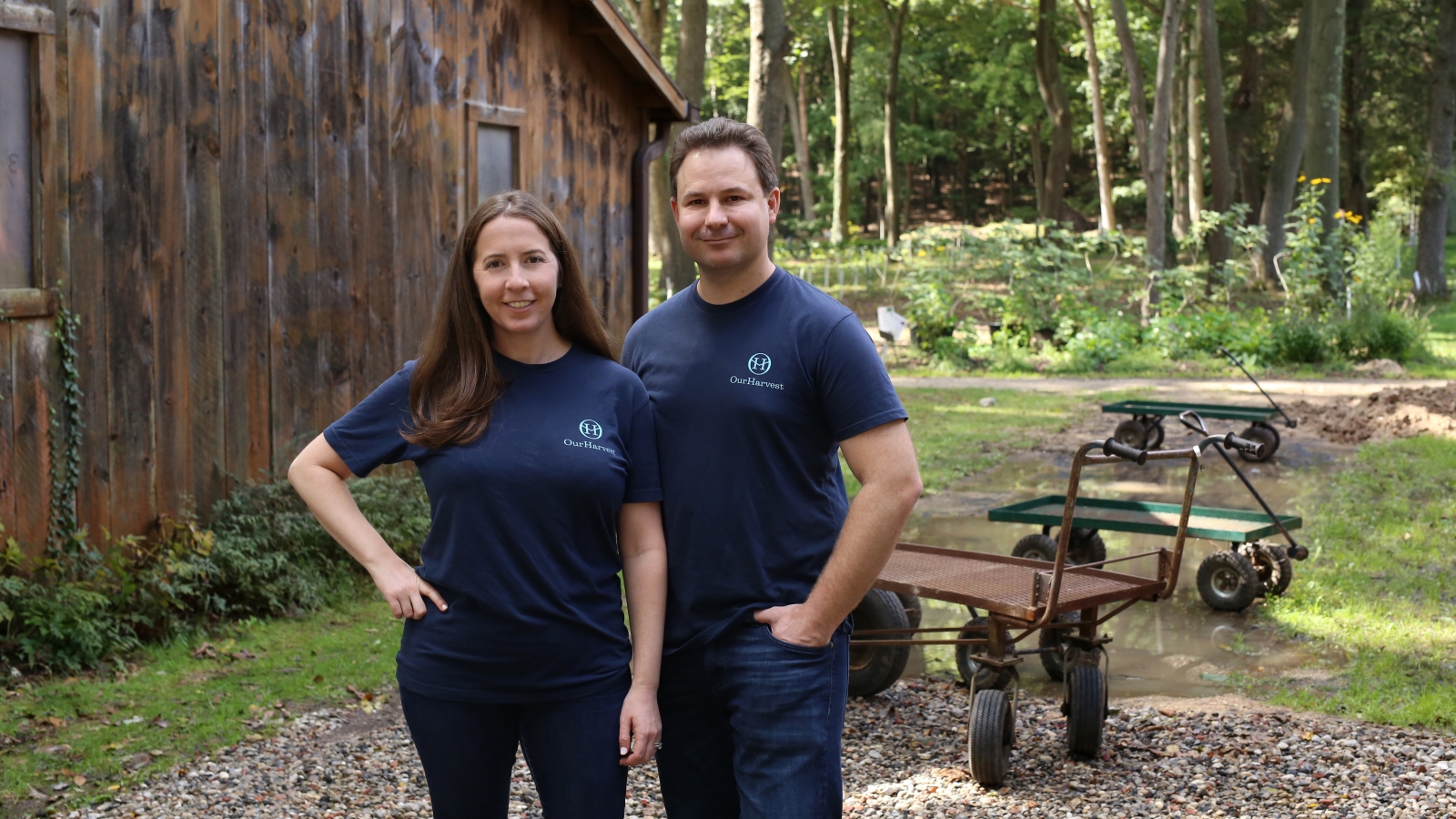
Penn Arts & Sciences at Work is a photoblog project that tells the story of the extended Penn Arts & Sciences community. First-hand accounts capture the diverse paths of our alumni, focusing on their daily work life.
Whether it’s Trang Do, C’06, whose on-camera work as a general assignment reporter on CBS-3 has allowed her to connect with the community at large; Michael Winik, C’05, W’05 and Rebecca Beyer Winik, C’05, who bring freshly harvested farming goods to shoppers; or Adriana López Vermut, C’00, who uses cooking to connect her family and customers with her Venezuelan heritage, Arts & Sciences alums are carving out niches for themselves as entrepreneurs, business leaders, and creative forces.
Below, they communicate their career journeys in their own words.
Visit Penn Arts & Sciences at Work to explore other alumni journeys.
Michael Winik, C’05, W’05 and Rebecca Beyer Winik, C’05
Co-Founders, Our Harvest
Huntington, New York
Michael Winik: Political Science and Finance major Rebecca Beyer Winik: Psychology major
Michael: The whole goal of what we’re trying to do is to bring local amazing small family farms directly to customers who can’t get to the farmers market, or they can’t get to farms directly. We’re trying to be that bridge and get stuff literally the day it’s harvested to our customers as often as possible.
We had the benefit of doing a lot of traveling around the world, seeing how people actually eat, and what their relationship with food is in different places. In the south of France people go grocery shopping once or twice a day. It’s the same in Vietnam. It’s the same in Thailand. And here we’re buying stuff that is filled with chemicals and can sit on a shelf for months and months and months. When you taste something that was picked that day or was caught that day out of the ocean—those are the kind of experiences that we had that really shape the career trajectory.
Especially if you’re trying to take an entrepreneurial path, everyone has this dream or this vision of, I’m going to start a company and it’s just going to be wonderful, sort of like all sunshine and rainbows. When you actually run a business there are things that happen at all hours of the night and the day that put you back in that moment where you’re cramming for that test that you’re worried you’ll fail. You’re going to have those moments in your career, whatever it is, where you’re really stressed out. And having the experience and the knowledge that you build at school to be able to drive through that is something that’s really important.
Rebecca: I did a lot of really cool things in the architecture world and then in 2013 we both had come to a point in our respective jobs where we said we wanted to be doing something a little bit different.
My role at Our Harvest is very multifaceted. Even though it’s a food company there are so many different aspects to what we do on a daily basis that are relatable to what we’ve done during our whole education.
I think “going outside of your comfort zone” can sound a little clichéd, but it’s something that’s a critical aspect of learning. You don’t learn unless you do some practicing in something that you don’t already know how to do. For instance, when the company started, Mike was driving the truck to deliver food in the beginning, because that’s what you do when you want to make your company successful. You do every job that is possible. You mop the floors. You do whatever it takes to get yourself up and running.
Lance Stier, C’04
President, Nassau Candy
Hicksville, New York
Philosophy, Politics and Economics major
I think I always knew that I was going to go into the consumer and food businesses broadly, and having grown up the son of an entrepreneur, I knew I wanted to build something. We have 1,000 total employees and I’m running a business across multiple regions, so it’s hand-to-hand combat all day long.
In 2013, we had Hurricane Sandy come through our Freeport facility. We had millions of dollars’ worth of inventory on the floor ready to go to ship to our customers. And then six feet of saltwater came into our plant. I saw our chocolate floating in the parking lot. The facility was dark. The machines were inoperable. What happened then, though, was one of the coolest things ever.
I called my head of facilities. I called the president of the group. I called my head of production and my head of sales. I said, “Here’s the game plan. One person is going to be on point on the equipment. One person is going to be on point on inventory. One is going to be on point on calling the customers, and the other is going to be on point for facility cleanup.”
So we put our heads down, and in 19 days, we were able to take a facility that had no inventory, no operating equipment, no nothing, and get it fully live. Now, that company is about 10 times the size that it was when that issue happened. And I think that part of the reason is because we learned what it means to go through the craziest and worst situation, and we’ve come out the other side a better, stronger team.
Life’s a marathon, not a sprint. When you’re sitting in college and you hear about these great stories, about these people building these awesome companies, you think it happens overnight. It doesn’t. It happens piece by piece, day by day.
Trang Do, C’06
General Assignment Reporter, CBS-3
Philadelphia, Pennsylvania
Communication major
My parents being immigrants, they raised me to work hard. I started at age 12 and I’ve been working ever since.
I’ve always known I wanted to become a journalist, and I never had these delusions it was going to be a glamorous thing. I knew it would be hard work.
When I got the job at CBS-3, it was a very proud moment for me and for my family. I shared the video of when I did a reveal to my family and that really resonated with people, because my family is a big, loud Vietnamese family, and they were freaking out. Being a broadcaster in my hometown … not many people get to do that. And just recently I had another really proud moment when I anchored for the first time in Philly.
When you do a story that really connects with a lot of people, it always feels good. Now, in the age of social media, when people connect with a story, you can see it immediately, and that’s a good feeling—especially if your subject feels like you told their story in a meaningful way.
Carlos Torres, C’07
Acting Intake Branch Chief and Equal Opportunity Specialist, U.S. Department of Housing and Urban Development
Boston, Massachusetts
International Relations major
I took a class with Mary Summers [Lecturer, Political Science and Senior Fellow, Fox Leadership Program] my senior year. It was an Academically Based Community Service (ABCS) class and I worked in West Philadelphia with an organization that was called National Student Partnerships at the time. It was an all-purpose social service provider. So it wasn’t that we had any particular issue area expertise. It was, “I’m bright and I know how to use the internet, and I have spare time. Come in and we’ll solve your problem together however we can, or figure out who can solve it for you.”
Up until that point, I had been a very hardline, bootstraps libertarian. I thought, “Your problems are your own fault. You must be able to figure this out, and if you can’t figure it out, that’s your own issue.” Doing that work out there and meeting the people that I met, it became painfully apparent that, in the vast majority of cases, it’s a matter of education and resource access.
In government, nobody wants to be wrong and misstep. But there are so many opportunities, especially in the kind of civil rights work that we do, where we can really reach out much further than we think we can. We just have to be willing to do the outreach, or make the claim, or work with people to figure out how it is that we can advance equity while preserving business interests. You have to go out and have the conversation in order to figure a potential path.
Adriana López Vermut, C’00
Founder, Pica Arepa Kitchen
San Francisco, California
Cultural Anthropology major
When my daughter was born, my dad asked me what I was planning to do to stay connected to my heritage. I knew I did not want to go back to venture capital or technology investing. It was not my passion. At the time, he had three restaurants in Venezuela. He said, “Why don’t we consider opening a restaurant here? A Venezuelan restaurant?”
It’s been beautiful, to me, because it is reflective of my heritage. It has impacted my children’s understanding, as well, and they feel very connected. When you cook it’s a very easy way of explaining heritage.
My daughter absolutely loves to cook. In third grade, she had to do a book project, and she created a cookbook called The Simple Art of Cooking. It was about a kid teaching a kid how to cook. In her introduction she said that she loves cooking because her mom and her grandpa started a restaurant and that she knows what she knows because she has worked at the restaurant. Then she calls out some recipes that she says, “They’re impossible to explain because they can only be learned when you work in a family that cooks together, and if you want to taste it, just go to the restaurant; don’t try to make it. My mom makes the best.”
Joshua Bennett, C’10
Assistant Professor of English and Creative Writing, Dartmouth College Harvard Society of Fellows
Hanover, New Hampshire Cambridge, Massachusetts
Africana Studies and English major
The people in my family, they weren’t professional writers, they weren’t academics, they were working people. My parents both worked for the post office, and so my sense of what work should be always was very physical. My father carried a bag of mail from a truck to a conveyor belt for 10 hours a day, every day, for 40 years. When he would drop me at school he would say, “I go to that job so you can have choices.”
I didn’t know what a professor was when I was 17. Cornel West was the first professor I ever knew of. I was like, “Oh okay, you can do this for a living? There is such a thing as African American studies? What is that?” You can study Black literature, Black culture, you can make a living from that, you can make a life from that, something I had never really fathomed before.
What’s exciting to me now is that I get the chance to play with new ideas, to learn from my students, to be in community with them, to hear from them about how campus maybe needs to change or what can be better, and to learn about myself as an educator in this different environment.

